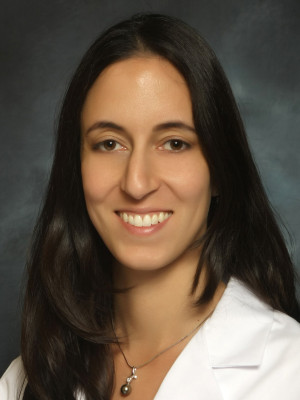In honor of Birth Defects Prevention Month, we spoke to Dr. Neda Zadeh, a CHOC geneticist and the associate director of the Molecular Diagnostic Laboratory at Genetics Center. Dr. Zadeh specializes in caring for patients with developmental disabilities, genetic disorders and birth defects.
Q: What can parents do to prevent birth defects?
A: The cause of most birth defects is not well known. Many are the result of a combination of genes and the environment. Therefore the occurrence of a birth defect is not due to anything a parent did or did not do during the pregnancy.
The occurrence of certain types of birth defects involving the spine (spina bifida) can be reduced in a certain population of women who may have had a prior child with a neural tube defect. Most prenatal vitamins include 400-800 micrograms of folic acid, but a mother who has a prior child with spina bifida can be prescribed an increased dose of 4 mg per day, in addition to her prenatal vitamins.
Q: What screening can be done to detect birth defects before the baby arrives?
A: All pregnant women under 35 years of age and without any prior family history of a birth defect or genetic condition are offered prenatal screening through their obstetrician’s office, to detect a fetal chromosome abnormality and/or birth defects. Pregnant women over 35 years of age, or those with a prior child with a birth defect, or family history of a genetic condition; are recommended to seek genetic counseling to discuss both prenatal screening as well as prenatal diagnostic tests that are available. During the genetic counseling visit, prior medical history for the couple is obtained as well as a three- generation family history. Other factors discussed include conditions that run in the family or those that could be more prevalent in certain ethnic groups to determine if any carrier testing is indicated.
Prenatal screening tests typically involve a sample of the mother’s blood at particular times during the pregnancy and are designed to detect specific birth defects and chromosome abnormalities. Part of the screening includes a special ultrasound performed during the first trimester, which only measures the back of the fetus’ neck (nuchal translucency). If this measurement is enlarged, it may indicate a fetal organ defect, a possible fetal chromosome abnormality, or single gene disorder. Around four to five months of pregnancy, a detailed ultrasound is performed that examines the entire fetus and is geared towards detecting any anomalies or birth defects. Genetic counseling is offered in the event that a prenatal ultrasound reveals an abnormality, in order to provide further information to the couple.
Identifying a birth defect or chromosome abnormality prenatally is often advantageous to parents, so they’re not surprised when the baby is born. Geneticists and genetic counselors can provide specific genetic counseling and additional support to expectant parents, including connecting them to a birthing center that has appropriately trained specialists who can specially care for the baby when it is born. Some centers also like to meet with the couple prior to their baby’s delivery to have a birthing plan in place, so that the couple feels comfortable and knows what to expect.
Not all genetic conditions or birth defects are diagnosed before a baby is born. Some birth defects and genetic syndromes may not be diagnosed until childhood. Children with developmental delay or unique features may be referred to a geneticist for a comprehensive evaluation in order to determine if there is an underlying genetic condition. Knowledge of an underlying genetic diagnosis is important, as it aids in providing better and more specific care to the child.
Q: How do birth defects affect the child’s family?
A: When a birth defect is detected during pregnancy, parents can experience emotional effects right away. Fear of the unknown can make it hard to enjoy the pregnancy. This is why it’s helpful to schedule follow-up visits with a provider, who are experts on their baby’s condition and can explain the diagnosis again, and answer any questions. It may take several visits before parents feel comfortable in their understanding of the information being provided.
Parents should be connected to educational and support services upon diagnosis. In addition to connecting parents with resources in the community, including support groups, pediatricians can also make referrals to a CHOC geneticist, who can provide additional information and support.






